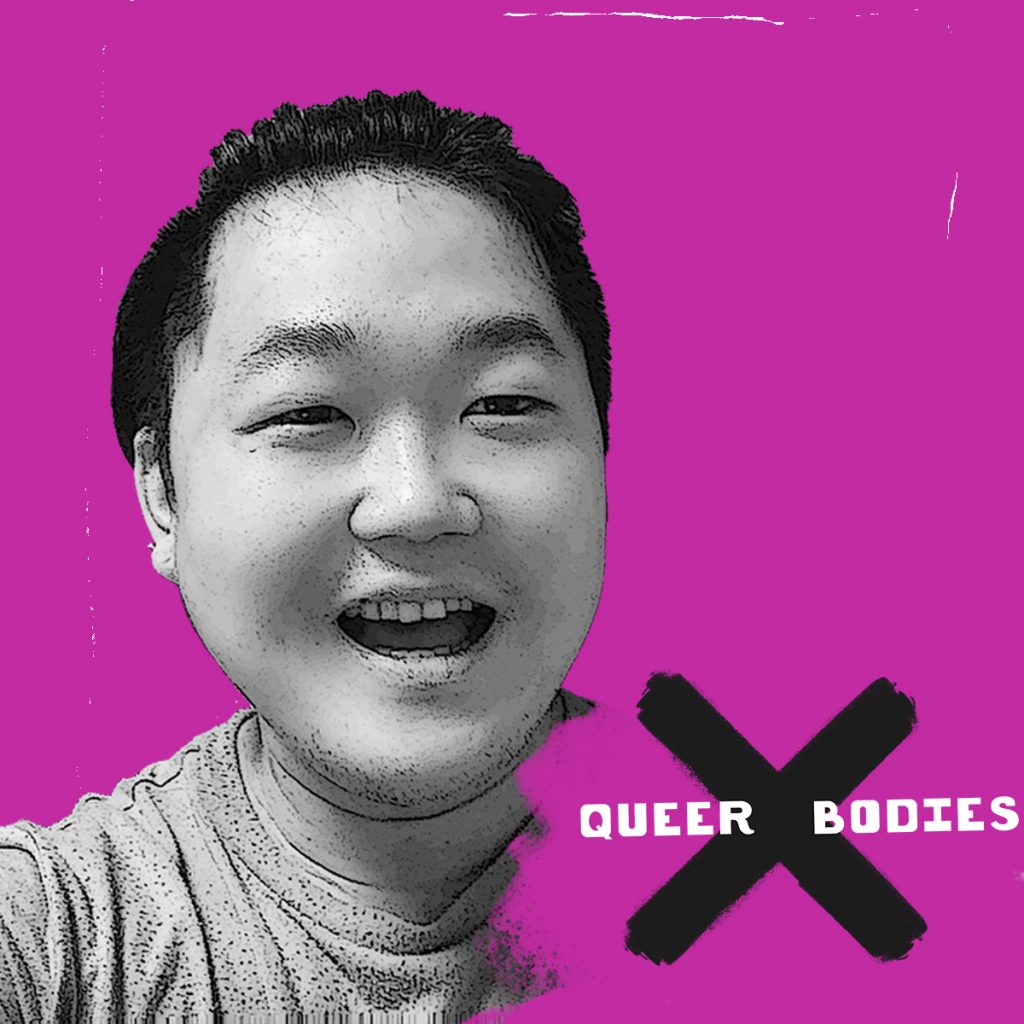Taking it forward - PLHIV and LGBTIQ communities lead the COVID-19 response in South Korea: Sung-Uk So (So-Ju), South Korea
By Tharindi Devasurendra – Monday, December 17, 2020

The world is now being swept by waves of fear and unrest as the global pandemic continues to take the world by storm. As countries try to articulate their life around the virus safely, many underprivileged and marginalized communities continue to be left behind. In these trying times, many activists have stepped up in their advocacy and activism to help and uphold human rights in the response to COVID-19. Sung-Uk So (So-ju), who is deeply involved in LGBTIQ activism in his country South Korea, is one of these activists working tirelessly through the upheavals of the pandemic. So-ju works for an organization called CommunityR, a nest where young People Living with HIV (PLHIV) share their worries and hurts and support each other. CommunityR strives to promote the human rights of those living with HIV and those belonging to the LGBTIQ sector.
In his home country of South Korea, So-ju shares that the spread of COVID-19 has been deeply associated with and blamed on the LGBTIQ community. Take for instance an outbreak that occurred at a night club in Itaewon, Seoul in early May. Following the outbreak, South Korea has experienced a marked increase in online threats and discrimination against LGBTIQ people, especially gay men. In light of this, HIV and AIDS human rights groups and sexual minority human rights groups in South Korea gathered to form the QUEER Action Against COVID-19. So-ju and his organization were one of many who stepped up to battle this hate from the public.
Moreover, as COVID-19 was particularly fatal to people and communities with social disadvantages (in economic, social, and cultural aspects), human rights groups, including Youth PLHIV Community of Korea ‘R’, formed the Network of Human Rights Groups to Respond to COVID-19 which produced guidelines on how human rights principles should be observed in society and distributed these as books. Furthermore, The Network of Human Rights Groups to Response to COVID19, which includes CommunityR, also produced information needed by PLHIV to prevent COVID-19, which was shared with the community.
- 🧐HIV/AIDS 제대로 '알'자!!🤓 놀랍지 않으세요? HIV감염인들에게도 출산,육아같은 불가능해보였던 일들이 가능해졌습니다. 지난 온라인 서울퀴어문화축제 알X행성인에이즈팀 부스에서 진행한 퀴즈의 결과를 바탕으로 차례차례 정확하고 올바른 정보를 공유드릴게요!! 😍
Posted by Youth PL Community R - 알 on Sunday, December 13, 2020
As a result of the negative association of COVID-19 with LGBTIQ people, discrimination in health services towards the community increased as reported by the Network of Human Rights Groups to respond to COVID-19. The backlash exacerbated the already existing stigma and discrimination that LGBTIQ people face today.
So-ju and his team are currently collecting and analyzing data on discrimination in healthcare settings to provide recommendations on how to ensure access to quality HIV services for all. Moreover, an investigation team has been created to strengthen access to differentiated services for transgender people including hormone therapy, mental healthcare, and health services to treat and alleviate body dismorphia. “Healthcare settings should be stigma-free environments that ensure people living with HIV and key populations stay healthy. Anti-discrimination protection has to be strengthened in the workplace and in healthcare settings as well as more training for healthcare providers need to be provided,” says So-ju.
Movement restrictions are also making it twice as difficult to reach out to LGBTIQ people with HIV prevention strategies. As a large portion of So-ju’s work included face-to-face contact with people before the COVID-19 outbreak, he was able to articulate and adjust to the current situation by using online platforms. In the case of Itaewon, the gay community was reached through dating apps and were provided information on HIV modes of transmission and other resources, healthcare facilities, and awareness about COVID-19 prevention. Other related initiatives are also being organized by individuals and organizations under the broader network called the Rainbow Movement Against Sexual Minority Discrimination.
The continuous efforts that have been put into preventing hate speech and scapegoating in the media and raising awareness on COVID-19 have contributed to relieve emotional stress and anxiety among LGBTIQ people. These community-led efforts that included tackling stigma and discrminiation also prevented further hate stories from the media.
In such divisive times, So-ju and his team along with many other partners have stood in solidarity of organizations for sexual minorities and PLHIV. They were able to mobilize financial sponsorships, cooperation with local governments, and donations from the public to reduce the socio-economic impact of COVID-19.
In solidarity with the rest of the queer Korean community, several organizations regularly come together to advocate for equality and non-discimination legilstation for LGBTIQ communities in Korea
Working through the pandemic has become a very reflective time for everyone. So-ju mentions that one specific and significant realization was the importance of opportunities to meet each other safely and equally without discrimination. This becomes more important to address as the impact of the pandemic on the LGBTIQ community intensifies. To make sure that no communities are being left behind, he explains that it is important to constantly visualize the separate existences of people and the issues they face.
Lastly on the recurring term ‘new normal’, So-ju mentions, “I don’t think this is the new normal. Many difficulties and inequalities have been highlighted and revealed through this pandemic. Alternatives and activities to resist and resolve these difficulties and inequalities should be a stepping stone for the new normal.”
Share post




